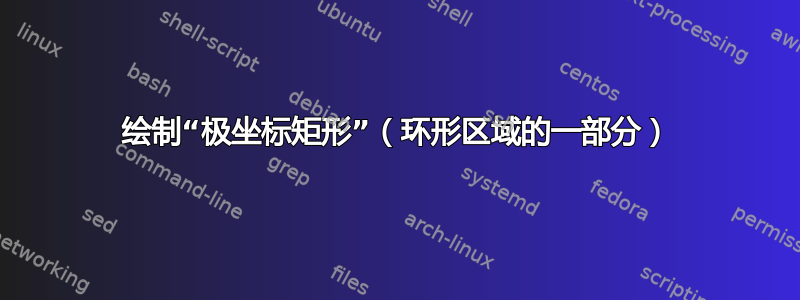
我画了以下区域
使用代码
\documentclass[12pt]{article}
%tikzpicture
\usepackage{tikz}
%pgfplots
\usepackage{pgfplots}
\pgfplotsset{compat=newest}
\usepgfplotslibrary{statistics}
\usepgfplotslibrary{fillbetween}
\begin{document}
\pgfplotsset{
unit vector ratio*=1 1 1,
standard/.style={
axis line style = thick,
trig format=rad,
enlargelimits,
axis x line=middle,
axis y line=middle,
enlarge x limits=0.15,
enlarge y limits=0.15,
every axis x label/.style={at={(current axis.right of origin)},anchor=north west},
every axis y label/.style={at={(current axis.above origin)},anchor=south east}
}
}
\begin{tikzpicture}
\begin{axis}[standard,
xtick={1,2},
ytick={2},
samples=1000,
xlabel={$x$},
ylabel={$y$},
xmin=-2.25,xmax=2.25,
ymin=-0.02,ymax=2.5]
\addplot[name path=F,domain={-2:2}]{sqrt(4-x*x)};
\addplot[name path=G, domain={-2:2}]{sqrt(1-x*x)};
\addplot[fill=black, fill opacity=0.2] fill between [of=F and G, soft clip={domain=-2:2}];
\end{axis}
\end{tikzpicture}
\end{document}
但是阴影区域效果不太好,特别是边界附近。有人有改进的想法吗?
一般来说,有没有一种方便的方法来绘制a≤r≤b且α≤θ≤β的极坐标矩形?
答案1
按照 Sigur 的建议,以下是完整的代码:
\documentclass[10pt,a4paper]{article}
\usepackage{tikz}
\begin{document}
\begin{tikzpicture}[scale=2]
\draw[-latex] (-2.5,0)--(2.5,0) node[right] () {$x$};
\foreach \i in {-2,-1,0,1,2}
\draw[red] (\i,.2)--(\i,-.2) node[red,below] () {\small $\i$};
\draw[-latex] (0,-.2)--(0,2.5) node[above] () {$y$};
\foreach \j in {1,2}
\draw[red] (.2,\j)--(-.2,\j) node[red,left,above] () {\small $\j$};
\draw[fill=gray!10,opacity=.8] (1,0) -- (2,0) arc (0:180:2cm) -- (-1,0) arc (180:0:1cm) -- cycle;
\end{tikzpicture}
\end{document}
此代码的输出:
编辑一些变化:
使用以下代码:
\documentclass[10pt,a4paper]{article}
\usepackage{tikz}
\begin{document}
\begin{tikzpicture}[scale=2]
\draw[-latex] (-2.5,0)--(2.5,0) node[right] () {$x$};
\draw[fill=gray!10,opacity=.8] (1,0) -- (2,0) arc (0:180:2cm) -- (-1,0) arc (180:0:1cm) -- cycle;
\foreach \i in {-2,-1,0,1,2}
\draw (\i,0)--(\i,-.1) node[below] () {\small $\i$};
\draw[-latex] (0,-.1)--(0,2.5) node[above] () {$y$};
\foreach \j in {1,2}
\draw (0,\j)--(-.1,\j) node[left,above] () {\small $\j$};
\end{tikzpicture}
\end{document}





